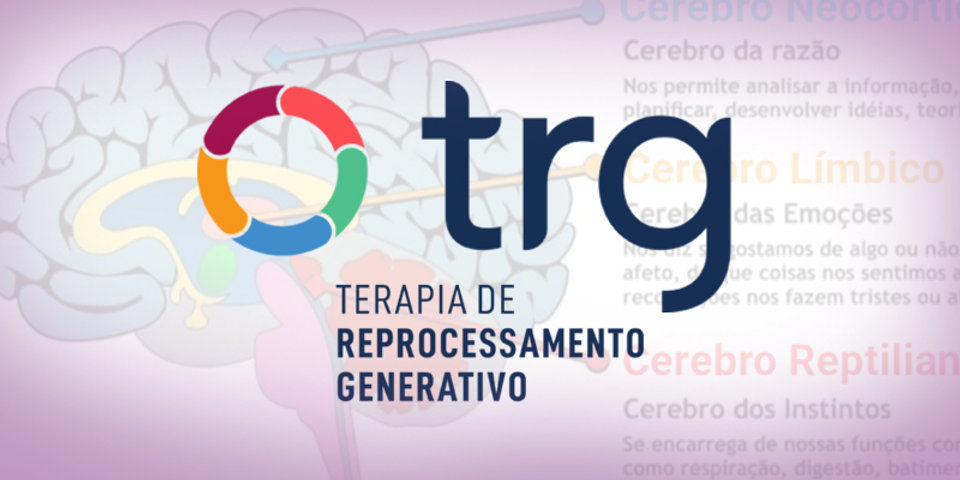🧠 The Invisible Scars: How Childhood Trauma Affects Adult Life Through the Lens of Generative Reprocessing Therapy
- Jefferson Delgado
- 16 de jul.
- 3 min de leitura
Not all wounds are visible. Often, the deepest traumas leave no physical scars but silently shape the way we think, feel, and relate to the world. Childhood, a time when we are most open and vulnerable, can leave unconscious imprints that remain with us throughout life – influencing our emotions, behaviour, and even our professional or personal choices.
Generative Reprocessing Therapy (TRG), developed by Brazilian psychologist and professor Jair Soares, offers a new way of looking at these invisible marks. Unlike traditional talk therapies, TRG works directly with unconscious memory, promoting genuine emotional reprogramming and healing.
👶 Childhood Trauma and the Unconscious
Many adults experience anxiety, insecurity, fear of rejection, low self-esteem, or compulsive behaviours without fully understanding where these feelings come from. According to TRG, such emotional patterns often stem from early experiences that were unconsciously recorded in a painful way — such as rejection, harsh criticism, abandonment, violence, or even seemingly small situations that had a deep impact on the child’s psyche.
These records remain active and continue to influence automatic reactions and behavioural patterns. Since they lie outside conscious memory or logical reasoning, they may appear to have "no clear explanation" — which can lead to further confusion and frustration.
🌀 How TRG Works on Past Wounds
TRG offers an innovative way to access and restructure unconscious memories. Drawing on the concept of neuroplasticity — the brain’s ability to form new neural connections — this approach helps to emotionally reprocess past experiences, replacing limiting interpretations with healthier, more empowering perspectives.
The therapy is organised into five core methods, tailored to the needs of each individual:
Chronological Method – explores one’s life timeline, revisiting events from childhood to the present.
Somatic Method – focuses on physical sensations associated with trauma, promoting the release of stored tension.
Thematic Method – addresses recurring emotional themes, such as fear, rejection, or abandonment.
Future Method – works with anxieties and projections related to the future, helping clients prepare for challenges with greater clarity and confidence.
Empowerment Method – strengthens internal resources such as resilience, self-worth, and inner confidence.
💬 Why Can’t We Just “Get Over It”?
It’s common to hear phrases like “that’s in the past” or “I need to move on”. However, when emotional pain is rooted in the unconscious, logic alone is not enough to bring healing. TRG acknowledges that this is not a sign of weakness, but rather a result of deep psychological conditioning that requires a specific therapeutic approach to be transformed.
🌿 Real and Lasting Benefits
Many individuals who undergo TRG report significant improvements in areas such as:
Anxiety and stress
Phobias and irrational fears
Depression
Obsessive-compulsive tendencies
Compulsive behaviours
Childhood trauma
Panic attacks
Relationship difficulties
Prolonged grief
Moreover, because it does not rely exclusively on verbal expression, TRG is a helpful option for those who find it difficult to put their feelings into words.
👥 Who Can Benefit?
TRG is suitable for people of all ages who wish to address deep emotional issues. Children (who are able to follow basic guidance) and cognitively healthy older adults alike can benefit from this therapeutic approach.
✨ Final Thoughts
Emotional wounds from childhood don’t need to define the rest of your life. Generative Reprocessing Therapy, created by Professor Jair Soares, offers a profound, respectful, and effective path towards healing. By working directly with the unconscious and helping to reorganise painful memories in a healthier way, TRG can unlock your true potential.
If you feel burdened by old emotional patterns, recurring difficulties, or unresolved pain, TRG may be the transformative process you’ve been searching for — a journey of healing from the inside out.






Comentários